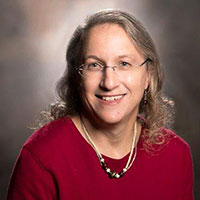The Abstract: February 28, 2022

February 28, 2022
Whether you’re local or global, student or alumni, the Abstract’s weekly news digest will help you stay in the loop with our amazing Gillings School community.
Speizer publishes commentary on strengthening language around contraceptive “need”

Dr. Ilene Speizer
Ilene Speizer, PhD, professor of maternal and child health, has co-authored a new commentary in Global Health Science and Practice on the need to apply a reproductive justice and human rights lens to language around contraceptive “need.”
Family Planning 2030 (FP2030), the next phase of the FP2020 global partnership, recognizes the importance of women and girls’ autonomy in seeking and using family planning (FP) services if and when they choose. As the Performance, Monitoring and Evidence Working Group (PME-WG) establishes the measures to monitor FP2030, the group has recognized the need to review and expand its measurement framework and indicators to align them with the increased women-centered focus of FP2030.
“As part of this effort, we feel it is time to highlight problematic language and misuse of common FP measures, particularly unmet need and demand satisfied, terms that fall short of capturing women’s (and their partners’) preferences and intentions around fertility and contraceptive use,” the co-authors wrote.
-
“Need”-based measures, such as unmet need and demand satisfied, are indicators used at the global level to assess progress in the family planning (FP) field and provide strong justification for FP programs.
-
These measures are commonly misused or misinterpreted and might not actually represent what girls and women want or need in terms of contraceptive methods and services.
-
To strengthen understanding and use, we recommend that inaccurate and confusing language be removed from the names and labels of these measures and that the FP field work to identify more accurate language.
-
Using a human rights and reproductive justice lens, the field needs to do two things: (1) consider refinements to current measures that better capture self-identified needs and preferences; and (2) develop new measures that capture the perspectives of users, potential users and non-users; this likely requires formative research with women, men and couples on motivations, aspirations and preferences around fertility desires and contraceptive use.
Read the full commentary online, as well as a related commentary.
Study sheds light on opioid overdose situation in South Africa

Michael Wilson
New research published in Harm Reduction Journal by UNC Gillings alum Michael Wilson, MPH ‘14, who has recently joined the faculty as an adjunct assistant professor of health behavior, represents the first known study done in South Africa on drug overdose.
Deaths due to drug overdose are rising at alarming rates worldwide, and in the United States, we surpassed more than 100,000 deaths in 2021. Wilson’s research brings attention to this important topic and builds on lessons learned around the world.
“At a time when global deaths due to drug overdose are at historic levels, this paper provides a preliminary snapshot of the overdose situation across three South African cities,” said Wilson. “As a result, it is an important advocacy tool for provision of comprehensive community-based harm reduction services, including access to Naloxone in South Africa”
Batsis shares lessons on obesity and aging at national roundtable

Dr. John A. Batsis
In October 2021, John Batsis, MD, associate professor of nutrition at the Gillings School, represented the American Geriatrics Society at a national Obesity and Equitable Aging Roundtable held by the National Council on Aging. His participation represents not only thought leadership in obesity and aging, but it led to an opportunity to influence policy when he was asked to share key takeaways with leadership at the U.S. Centers for Medicare and Medicaid Services, with a special focus on health equity for Medicare beneficiaries.
His expertise has also contributed to a consensus statement on the definition and diagnosis of sarcopenic obesity from the European Association for the Study of Obesity and the European Society for Clinical Nutrition and Metabolism.
Batsis also shared his expertise in this area through a recent interview with AARP in which he shared guidance for those taking medications classified as “obesogenic,” meaning they can contribute to obesity. This situation must be handled with care because many of these medications treat conditions which can be exacerbated by weight gain. In this interview, he discusses the implications related to five medications commonly prescribed to older people that can cause weight gain.
Cristello and Mayer-Davis author new article on dietary flexibility’s impact on Type 1 diabetes

Dr. Elizabeth Mayer-Davis
Doctoral student Angelica Cristello and Distinguished Professor and Chair Elizabeth Mayer-Davis, PhD, have co-authored a new article in Nutrients titled “Too Much Dietary Flexibility May Hinder, Not Help: Could More Specific Targets for Daily Food Intake Distribution Promote Glycemic Management among Youth with Type 1 Diabetes?”
Average glycemic levels among youth with type 1 diabetes (T1D) have worsened in some parts of the world over the past decade despite simultaneous increased uptake of diabetes technology, thereby highlighting the persistent need to identify effective behavioral strategies to manage glycemia during this life stage. Nutrition is fundamental to T1D management.
The study team reviewed the evidence base of eating strategies tested to date to improve glycemic levels among youth with T1D in order to identify promising directions for future research.
No eating strategy tested among youth with T1D since the advent of flexible insulin regimens—including widely promoted carbohydrate counting and low glycemic index strategies—is robustly supported by the existing evidence base, which is characterized by few prospective studies, small study sample sizes and lack of replication of results due to marked differences in study design or eating strategy tested. Further, focus on macronutrients or food groups without consideration of food intake distribution throughout the day or day-to-day consistency may partially underlie the lack of glycemic benefits observed in studies to date.
Engel co-authors paper on oil spill cleanup’s effect on hypertension

Dr. Lawrence Engel
Lawrence Engel, PhD, associate professor of epidemiology, is co-author on a new publication in JAMA Network Open titled “Association of Deepwater Horizon Oil Spill Response and Cleanup Work With Risk of Developing Hypertension.”
Engel’s study team aimed to uncover whether working on oil spill cleanup was associated with hypertension risk.
Their study found that participation in the Deepwater Horizon oil spill cleanup was associated with an increased risk of subsequent hypertension diagnosis compared with performing support work. Hypertension was also associated with higher cumulative exposure to total hydrocarbons.
These findings suggest that oil spill response and cleanup work associated with the Deepwater Horizon disaster may have long-term health consequences.
